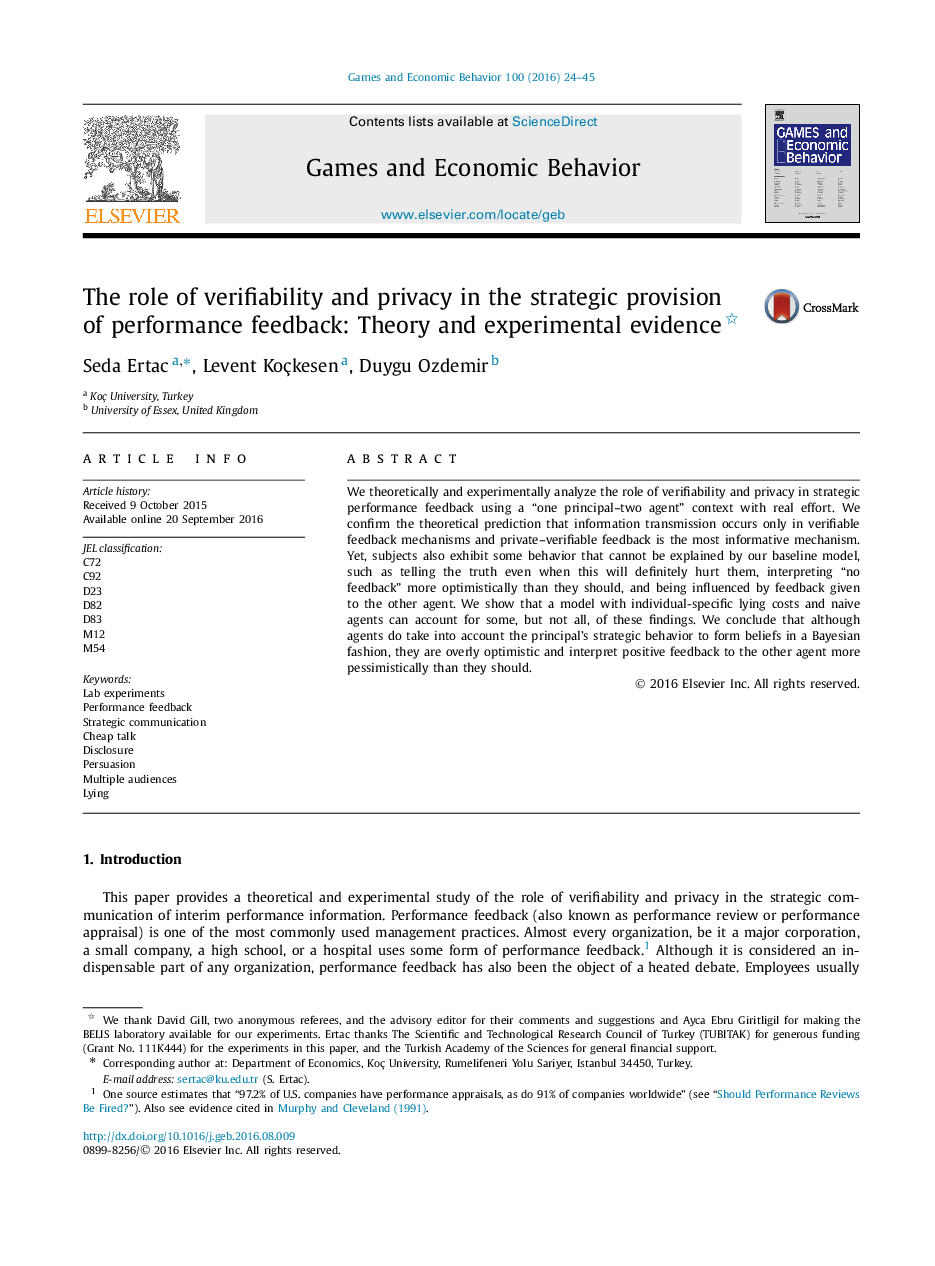| Article ID | Journal | Published Year | Pages | File Type |
|---|---|---|---|---|
| 5071442 | Games and Economic Behavior | 2016 | 22 Pages |
Abstract
We theoretically and experimentally analyze the role of verifiability and privacy in strategic performance feedback using a “one principal-two agent” context with real effort. We confirm the theoretical prediction that information transmission occurs only in verifiable feedback mechanisms and private-verifiable feedback is the most informative mechanism. Yet, subjects also exhibit some behavior that cannot be explained by our baseline model, such as telling the truth even when this will definitely hurt them, interpreting “no feedback” more optimistically than they should, and being influenced by feedback given to the other agent. We show that a model with individual-specific lying costs and naive agents can account for some, but not all, of these findings. We conclude that although agents do take into account the principal's strategic behavior to form beliefs in a Bayesian fashion, they are overly optimistic and interpret positive feedback to the other agent more pessimistically than they should.
Keywords
Related Topics
Social Sciences and Humanities
Economics, Econometrics and Finance
Economics and Econometrics
Authors
Seda Ertac, Levent Koçkesen, Duygu Ozdemir,
